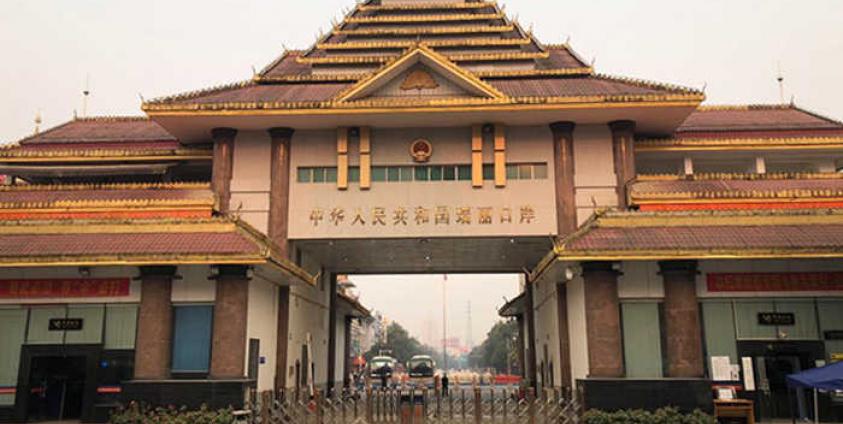NANG SENG NOM — Both official and unofficial border gates between the northern Shan State townships of Muse and Namkham and China have been closed for travel for the foreseeable future to slow the spread of the coronavirus pandemic.
Truck drivers told SHAN that on April 1 the Chinese authorities closed all border gates, such as those at Mang Weing, Nandaw, Sinphyu and on village roads.
Muse parliamentarian Sai Kyaw Thein said that he didn’t know when the gates would re-open.
“The Chinese authorities do not allow Burmese people to enter into China and they have blocked Chinese people from going to Burma,” he told SHAN. “But the Jin San Jao border gate remains open for border trade between the two countries.”
The shift came as Burma began reporting infections of the pandemic—one of the last countries in the world to do so.
“The Chinese authorities wanted to close the border gates once the Burmese government reported confirmed cases of COVID-19. They didn’t close them [at first] because tehre were no confirmed cases of COVID-19 in Shan State,” Sai Kyaw Thein explained. “But the Burmese government reported a confirmed case of COVID-19 in Kyaukme. Yesterday Chinese authorities informed us that they would go and shut down the border gates,” he said on Wednesday.
The restrictions are predicted to have the largest impact on migrant workers from Burma, who work as laborers in China in order to survive.
Sai Khin Maung, the chair of the Muse Fruit Wholesale Association, said that fruit trucks are still allowed to go into China even though authorities have restricted travel by people on foot.
“They only allow the driver of the car and the vehicle,” he told SHAN.
Sai Maung, who is a migrant worker in China, said that many workers like him have not received their most recent salary that they are due, but they returned to Burma anyway, afraid of being stuck across the border without money or a job.
“I have worked in a sugar cane farm there for four months. They gave me a partial salary. Now I only have bus fare,” he told SHAN.
Aik Sai, a local trader who lives in Namkham, said that Chinese authorities also closed docks and ports on the Shweli River between Namkham Township and China.
“Many lorries are stranded in both Burma and China. Migrant workers, traders and fresh food sellers are impacted,” Aik Sai told SHAN.
Burma’s Ministry of Health and Sport reported 16 confirmed cases of coronavirus on April 1, with one death.







